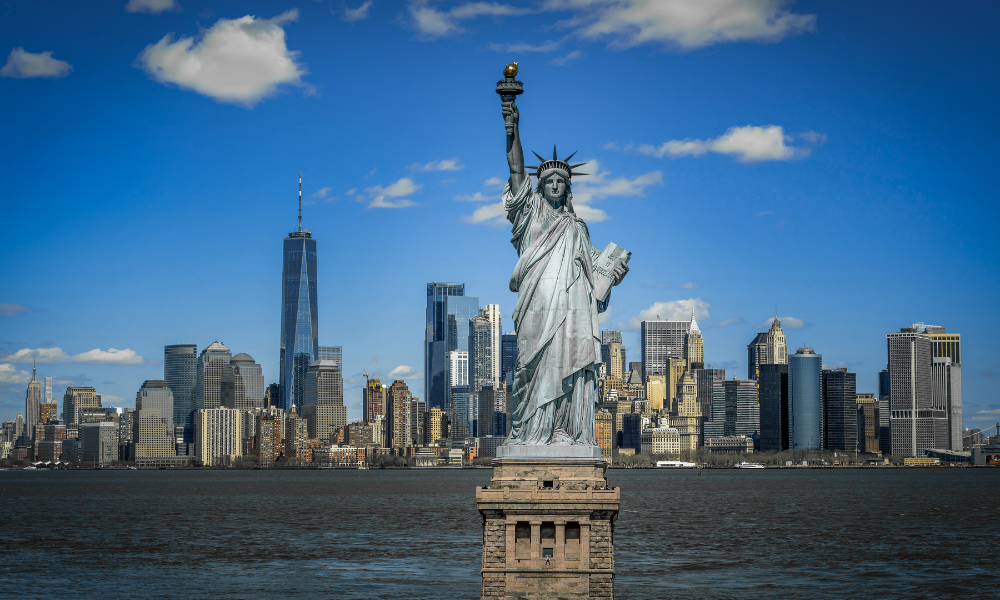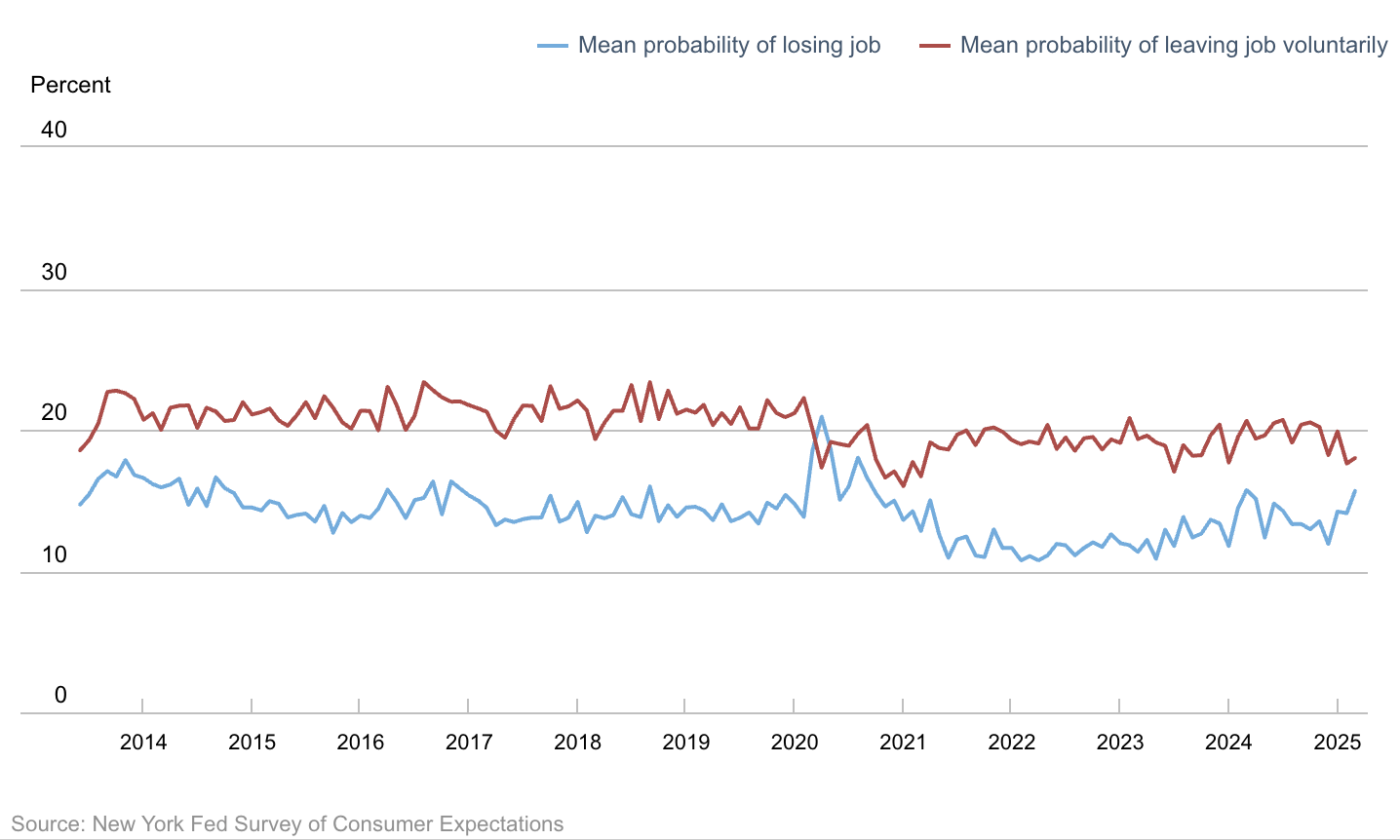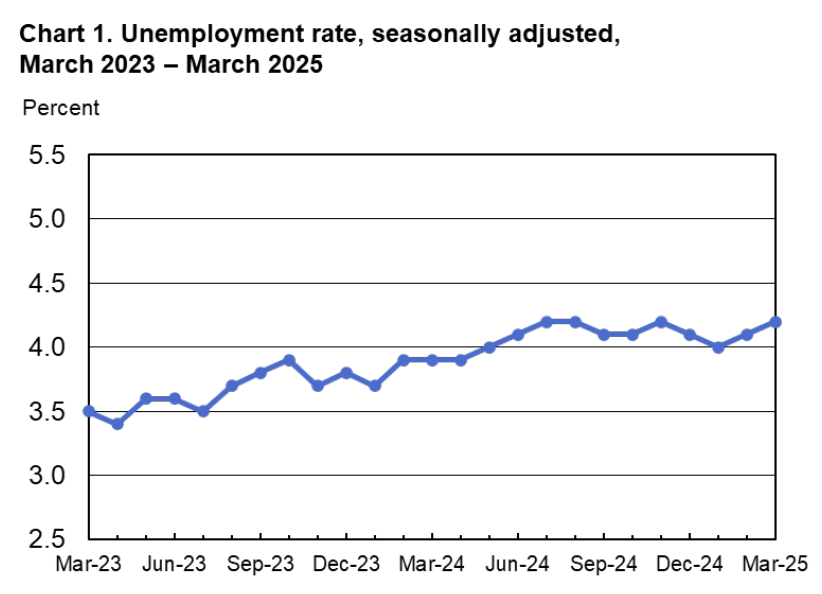
Fears over losing work also rose among Americans

Expectations that the US unemployment rate will go up have surged in the latest report from the Federal Reserve Bank of New York.
The March 2025 Survey of Consumer Expectations found that the mean probability that the US unemployment rate will be higher one year from now rose 4.6 percentage points to hit 44.0%.
This is the highest reading since April 2020, back when the COVID-19 pandemic was threatening health and jobs across the world.
The survey also found that expectations of losing work in the next 12 months increased to 15.7%. This marks a 1.6 percentage point increase, returning the level to its highest point since March 2024.
"The increase was largest for respondents with annual household incomes below $50,000," the report read. "The mean probability of leaving one's job voluntarily in the next 12 months increased by 0.4 percentage point to 18.0%, remaining far below the 12-month trailing average of 19.7%."

Losing work is not the only thing expected by employees in the coming year, but also the difficulty in finding a new job.
According to the report, the mean perceived probability of finding a job if one's current job was lost decreased by 0.1 percentage point to 51.1%.
The findings come despite the US labour market reporting job gains, adding 228,000 jobs in March, according to data from the Bureau of Labor Statistics.
Its latest employment situation report also found that the unemployment rate rose only slightly to 4.2% in March.

Source: The Employment Situation – March 2025
The negative outlook among Americans when it comes to their jobs comes in the wake of warnings from economists of a potential recession following the tariffs imposed by US President Donald Trump.
The tariffs, which the US president initially advertised as a policy that would deliver more jobs for Americans, are now being blamed as the reason for higher chances of recession in the US.
"The prospect of a recession has increased, with growing indications that economic activity is slowing down around the world," said David Solomon, chief executive of Goldman Sachs, as quoted by The Guardian.
Solomon's warning comes despite Trump's announcement of a 90-day pause on his sweeping tariffs worldwide. Tariffs on Chinese imports, however, surged to 145%, prompting a retaliatory 125% tariff on US goods by Beijing.
"This uncertainty around the path forward, and fears over the potentially escalating effects of a trade war, have created material risks to the US and global economy," Solomon said.